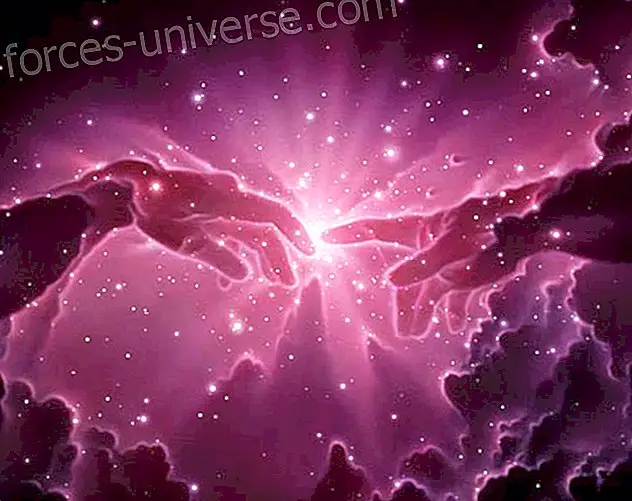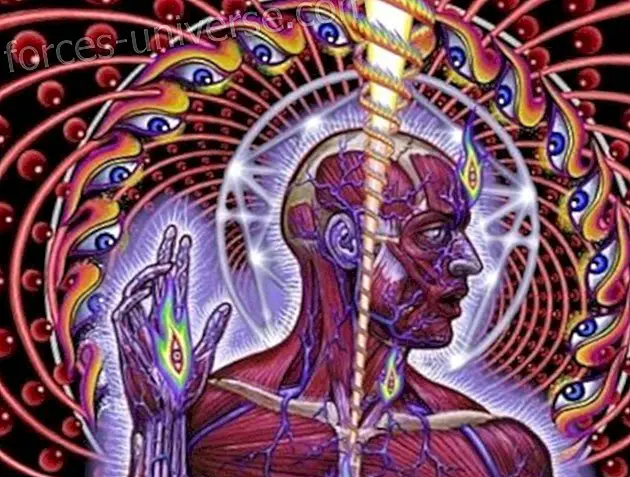Five questions about Karma, For the Venerable Ledi Sayadaw (From 'Manual of Buddhism', 1965)
- 2019

Five questions about Karma
For the Venerable Ledi Sayadaw
(From the ' Manual of Buddhism ', 1965)
Monywa Ledi Sayadaw was approached by a group of French thinkers, from Paris, who asked him certain questions about Karma and related topics.
The following is a Spanish translation of an English translation of these questions - five in number - and of what the Venerable Sayadaw answers them.
The translator of the original texts in French and Burmese frankly acknowledges the difficulty of his task, taking into account that the topics he deals with are of an important metaphysical depth .
His acknowledgments are due to U Nyana, the learned Patamagyaw, of Masoyein Kyaungdaik, whose extensive reading of the Buddhist Scriptures and his deep knowledge of Pali have been of great help to the translator.
Namo tassa bhagavato arahato samma sambudhassa.
Karma from parents to children
Question 1 : Do parents' Karmas determine or affect their children's Karmas? (Note: - Physiologically, children inherit the physical characteristics of their parents).
ANSWER : Physically, children's Karmas are generally determined by their parents' Karmas. Thus, healthy parents usually breed healthy offspring, and unhealthy parents cannot avoid begetting unhealthy children. On the other hand, morally, the Karma of a father or mother does not affect or determine in any way the Karma of his son.
The Karma of the child is a separate thing in itself — it forms the individuality of this child, the total sum of his merits and demerits accumulated in his innumerable past existences. For example, the Karma of who would be the Buddha, Prince Siddartha, was certainly not influenced by the set of Karmas of his parents, King Suddhodana and his Wife, the Mayan Queen. The powerful and glorious Karma of who the Buddha would be transcended his parents' Karmas which combined were less powerful than his.

Karma and diseases
Question 2 : If the parents' Karmas do not influence those of their children, how can one explain the fact that parents who suffer from certain virological diseases are able to transmit those evils to their offspring?
ANSWER : When a child inherits such diseases, it is due to the force the characteristics of the parents because of the strength of their utu (favorable germination conditions). Take, for example, two seeds of a young tree one on a dry, lower ground; and the other in a rich and moist soil. The result, we will discover, is that the first seed will germinate in a weak bud and will soon show symptoms of disease and decay while the other seed will flourish and flourish, and grow to become a tall tree. and healthy.
It will be observed that the pair of seeds taken in the same action grow differently according to the soil in which they are planted. The child's past Karma (to take the case to humans) can be compared to the seed; the physical disposition of the mother with the floor; and that of the father with the moisture that fertilizes that soil.
In some way, to illustrate the theme, we will say that, representing the germination, growth and existence of the bud as a unit, the seed is responsible for, say, a tenth of them, the soil for six tenths, and the humidity for the remaining, three tenths. Thus, unless the germination power potentially exists in the seed (the child), its growth is powerfully determined and accelerated by the soil (the mother), and moisture (the father).
Therefore, in the same way that soil conditions and humidity should be taken as major factors responsible for the growth and condition of the tree, so should the influences of parents (or parents, in the case of the gross world) be taken into consideration regarding the conception and growth of their affairs.
Determined factors
Parents (or parents) share Karma by determining the physical factors of their affairs as follows: - if they are human beings, then their offspring will be human beings. If they are won, then their affairs must be of their kind. If human beings are Chinese, then their offspring will be of that lineage. Thus, the offspring are invariably of the same genus and species, etc., as their parents.
It will be seen above that, unless a child's Karma is very powerful in itself, it cannot remain completely without influence by that of its parents. He is able to inherit the physical characteristics of his parents. However, it may happen that the child's Karma, being superlatively powerful, cannot be overshadowed by the influence of the conjunction of the parents' Karmas . Of course, it is not necessary to clarify that the (physical) evils that influence their parents can also be counteracted by the application of medical sciences.
All beings born of sexual cohabitation are the resulting effect of three forces — one, the ancient Karma of their past existences . The following are his mother's seminal fluids, and third, his father's seminal fluids. The physical dispositions of the parents may or may not be equated in strength. One can counteract the other to a greater or lesser extent. The Karma of the child and its physical characteristics such as traits, color, etc., will be the product of these three forces.
The soul without the body
Question 3 : In the death of a sentient being, is there a soul that wanders at will?
ANSWER : When a sentient being leaves an existence, he is reborn either as a human being, or as a Deva, a Brahma, an inferior animal, or as an inhabitant of one of the regions of hell. Skeptics and ignorant people argue that there are intermediate stages - Antarabhava - among these; and that there are beings that are not of the human kingdom, neither of the Deva or of the Brahma, nor of any of the states of existence recognized in the Scriptures., - But they are in an intermediate stage. Some claim that these transient beings are possessed by the five khandhas : *
Some claim that these beings are ' souls ' or detached spirits without any material envelopment and that they are in possession of the power to see themselves as Devas and even that they have the power to change at will at short intervals, from one to any of the stocks mentioned above. Others again support the fantastic and erroneous theory that these beings can (and manage to) fantasize about another existence different from what they are today. In that way, to take for example one of those supposed beings, the one who is a poor person — and still fantasizes that he is rich. He who is to be in hell — and fantasizes about being in the land of the Devas, and so on.
This belief in the intermediate stages between existence is false, and is condemned by Buddhist teachings. A human being in this life who by his Karma is destined to be human in the next will be reborn as such; one who by his Karma is destined to be deva in the next will appear in the land of the devas, and one whose future life is to be in hell, will be in one of the regions of hell in his next existence.

Idea of a wandering entity
The idea of an entity or ' soul ' or spirit ' going ', ' coming ', ' changing ', ' transmigrating ' from one existence to another is what entertains the ignorant and materialistic, and is certainly not justified by Dhamma: there are no such things ' going ', ' coming ', ' changing ', etc., as intermediate stocks. The conception that agrees with the Dhamma may perhaps be illustrated by the frame being ejected by the cinematograph, or the sound emitted by the gramophone, and its relation to the film or the sound — the case and the disk respectively.
For example, a human being dies and is reborn in the land of the devas . Although these two existences are different, the link or continuity between the two at death is unbreakable at the point of time. And so in the case of the man whose future existence is to be in the lowest hell.
The distance between hell and the abode of man seems to be great. But, at the point of time, the continuity of the ' passage ' from one existence to the other is unwavering, and there is no intervening matter or space that can disrupt the course of this man's Karma from the world of human beings to the regions of the hell. The ' passage ' from one existence to another is immediate, and the transition is infinitely faster than the blink of an eye or the fall of lightning.
Karma determines the kingdom of rebirth and the state of existence in that kingdom of all transient beings (in the cycle of existences that must be traversed until the final obtaining of Nirvana ).
Karma Results
Karmas are multiple in their results, and can be affected in many ways. Religious offerings ( Dana ) can give a man the privilege of being reborn as a human being, or as a deva, in one of the six deva worlds according to the degree of merit of his actions carried out. And so with the fulfillment of religious tasks ( sila ).
The five jhanas, or states of enlightenment, are found in the Brahma or Brahma-lokas worlds on top, the twentieth Brahma world. And the same with bad actions, whose perpetrators are to be found, step by step, descending to the lowest depths of hell. Thus, our Karmas, past, present and future, were, are and will be the total of the sum of our actions, good, indifferent or bad, according to our actions. As will be seen by the precedents, our Karmas determine the changes in our stock .
The Malignant Spirits are therefore not beings of an intermediate or transitory stage of existence, but are actually very inferior beings, and that belong to one of the following kingdoms of existence, which are the World of men, World of devas, regions of hell; Animals, below men; and Petas.
They are very close to the world of human beings. As their condition is unhappy, they are popularly considered evil spirits . It is not true that all those who die in this world are reborn as evil spirits, although human beings who die violently or suddenly are more likely to be reborn in these worlds of lower devas.
* Khandha : The 5 groups are called the 5 aspects in which the Buddha summed up all the physical and mental phenomena of existence, and which appear to be the ignorant man as his Ego, or personality, that is: (1) the Corporality group (rupakkhandha), (2) the Sentimental group (Vedana-kkhandha), (3) the Perception group (sanna-kkhandha), (4) the Mental Formation group (Sankhara -kkhandha), (5) the Consciousness group (vinnana— kkhandha). “ Everything that exists of bodily things, whether their own or external, brutal or subtle, high or low, distant or near, all that belongs to the Corporality group. What exists of feelings… of perception… of mental formations… of conscience… all that belongs to the Consciousness group ”. (S VIII. 8f) (" Buddhist Dictionary ", Nyanatiloka .)

Memories of the past life
Question 4 : Is there such a thing as a human being who is reborn and who is able to speak accurately of his past existence?
ANSWER : Certainly, this is not an uncommon occurrence, and is in accordance with the principles of Buddhism regarding Karma. Such a person is called a jatisara puggalo, of jat, ' existence '; Sara, ' memories '; and fight it, ' be rational '.
The following (who form an overwhelming majority of human beings) are not able to remember past existences if they are, and when they are, reborn as human beings.
- Children who die young.
- Those who die old and senile.
- Those who have strong addictions to drugs or alcoholic habits.
- Those whose mothers, during conception, have been ill or have had to work laboriously, or have been reckless or reckless during pregnancy. Children in the womb are stunned and startled lose all knowledge of their past lives.
The following are holders of a knowledge of past stocks : -
- Those who are not reborn in the human world, but who proceed to the world of devas, or Brahmas, or to the regions of hell, remember their past lives.
- Those who die suddenly due to accidents, while in good health, may also possess this faculty in the next existence, since their mothers, whose wombs are conceived, are healthy women, with a clean and calm life.
- Again, those who live calm and meritorious lives and who (in their past lives) have struggled and prayed to obtain this faculty often obtain it.
- Finally, the Buddha, the Arahantes and Aryas obtain this gift known as pubbenivasa-abhinnana.
The five Abhinnana
Question 5 : What are the five abhinnana ? Are they only obtainable by the Buddha?
ANSWER : The five Abhinnana (Psychic powers) (Pali Abhi, ' outstanding' ; nana, ' wisdom ') are:
Iddhividha, Creative power;
Dibbasota, divine ear;
Cittapariya-nana, Knowledge of the thoughts of others,
Pubbenivasanussati, Knowledge of one's own past lives; Y
Dibbacakkhu, The Divine Eye.
The five Abhinnana are also obtainable by Arahantes and Aryas and not only the high ones, but also ordinary mortals who practice according to the Scriptures ; as was the case with hermits, etc., who flourished before the time of the Buddha and who were able to rise in the air and cross different worlds.
In the Buddhist Scriptures, we find, clearly shown, the means to obtain the five abhinnana; and even today. If these means are carefully and perseveringly persecuted, it would be possible to obtain them. That we do not see any person endowed with the five abhinnana today, is due to the lack of physical and mental effort to obtain it.
AUTHOR: Lucas, editor and translator of the great family of hermandadblanca.org
SOURCE: http://www.myanmarnet.net/nibbana/q&aledi.htm






